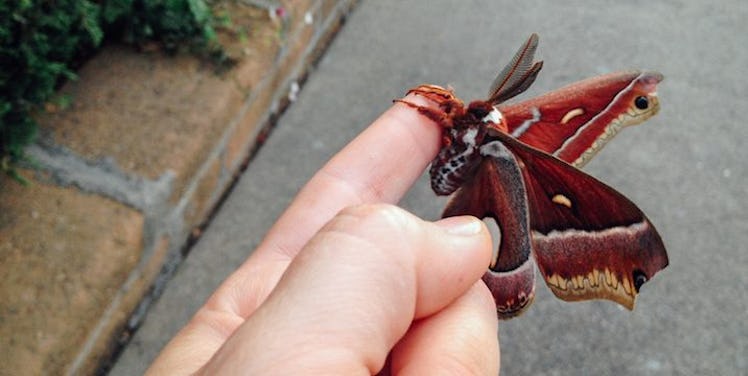
The Weird Reason Moths Are Actually Stronger And Healthier Than You Are
Most people would never compare an amazing Olympic athlete to a moth.
In fact, it would probably be taken as an insult.
Moths are best known for eating sweaters that have been sitting in your mom's attic for the last 10 years, but according to a recent study by the University of Arizona, hawkmoths are some of the most impressively athletic creatures.
They fly about 3 miles in one night, slurping up nectar from flowers, without experiencing any muscle fatigue!
That should make any athlete jealous.
But how do they do it?
Antioxidants are key.
When humans perform intense aerobic exercises, it can cause reactive oxygen species, which are small reactive molecules that are a component in the killing response of immune cells to microbial invasion.
Basically, this oxidative stress causes fatigue and delays muscle recovery.
Athletes have been taking antioxidant supplements to counter this reaction because our bodies don't naturally create enough of them.
Moths don't take antioxidant supplements, though. They just eat sugar.
According to Science Daily,
When moths burn lipids during intense exercise, they produce more reactive oxygen species that pose further danger to their flight muscles.
But, the team discovered the moths that flew more intensely and frequently had less oxidative cell damage than the ones that were more sedentary.
Eran Levin, one of the study's lead researchers, explained,
[W]e suggest these high-performing animals consume a sugar-heavy diet to protect their muscles from damage.
So, how are these hawkmoths (also known as Manduca moths) able to consume the amount of sugar equivalent to 80 cans of soda and still sustain the most intense exercise in the animal kingdom?
Moths are basically superheroes.
The researchers discovered the moths use all the sugar they consume to make their own antioxidants.
And hawkmoths do this by directing whatever carbohydrates are in their diet to their pentose phosphate pathway.
Humans also have this metabolic pathway, but it doesn't produce all the antioxidants we need.
Levin said,
If we understand how the moth is doing it, you can find out how we do it. And we can learn about what goes wrong with our sugar consumption.
So, could this possibly lead to humans developing a way to metabolize sugar more effectively?
One day, the perfect body with a candy diet might just be possible.